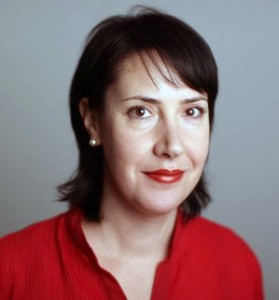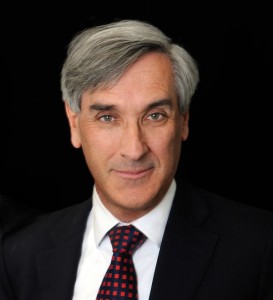Weekly Roundup, 9th May 2022

We begin today’s Weekly Roundup with pensions.
Pensions
In the FT, Josephine Cumbo said that DIY investors are struggling to transfer DB pensions into SIPPs.
- Those who want to transfer pensions valued at more than £30K are legally required to take advice from an IFA.
Over the past two years, the number of advisers offering pension transfer advice has plunged by more than 60 per cent, with many IFAs pushed out of the market by soaring professional indemnity premiums, as insurers react to rising pension misselling complaints.
Even worse, IFAs want to deal with clients who want to park their pension with the firm.
- Despite the chunky upfront fees (often £5K or more), the real money is in salami-slicing 1% pa or more from the pot.
Fees of 0.5 to 1 per cent would reduce an average transferred pension pot of £350,000 by £145 to £290 each month. Charges of 1 per cent to 1.5 per cent would reduce it by a further £290 to £440 each month – total deductions of £435 to £730 each month.
A DB scheme with a £350,000 transfer value might have a current income value of £1,000- £1,200 a month, so the charges represent between 44 per cent and 61 per cent of the value.
The situation Josephine describes certainly matches my experience a couple of years ago.
- One of my previous employers wanted to get rid of its pension obligations so that the firm (owned by an employee partnership) could be sold to private equity.
So they funded the IFA evaluation.
That transfer went well, so I looked into transferring another (larger) DB pension.
- Finding an IFA willing to do the work was very painful, and eventually, I gave up.
Mark Turner, MD at Kroll financial services compliance said:
Advisers and their insurers are well aware of the potential regulatory risks associated with providing DB transfer advice and many have now concluded that such risks outweigh the commercial benefits of providing the advice.
It is now incredibly hard, if not impossible, to obtain sensibly priced DB transfer advice that is not effectively packaged up with some kind of ongoing management arrangement.
Investment managers Tilney said:
We do not typically engage with clients who want to manage their own investments. The vast majority of consumers require the skills of professional investment managers to ensure that their pension fund has the best chance of meeting their needs.
Fidelity said:
Any client wishing to use our services for DB pension transfer advice must use our full advisory service, including the investments.
Former pensions minister Ros Altman commented:
It seems wrong that clients cannot just find independent advice which assesses their current needs objectively and, if a transfer is recommended, they can go ahead after paying for the adviser’s time and expertise. Most clients who transfer can benefit from ongoing investment advice but some don’t need it.
This is a broken system and needs to change, but the FCA doesn’t seem concerned:
Firms can choose which parts of the market they are prepared to service and determine their own business models.
Inflation
In his regular FT column, John Redwood looked at the impact of inflation on the investment outlook.
Some companies can pass on the full cost increases they are experiencing when paying staff, buying energy and sourcing raw materials because they sell essentials and have strong brands. Others will start to struggle as demand for more discretionary items drops.
Cash has been John’s best performer over the last month, but cash doesn’t keep up with inflation.
The value of the inflation-linked bonds, held in anticipation of faster price rises, can still be adversely affected by rising rates even though they are indexed to inflation.
Central banks are now at very different stages in their battles with inflation:
Several of the emerging countries have raised rates a lot to curb the pressures. The Bank of England led the way for advanced countries and the US is now set to catch up with several rate rises. The euro area is way behind where it needs to be.
The rise in prices of food and energy will do some of the work for the banks, but recessions are still likely.
And there is also the end of globalisation and the formation of regional blocks to consider:
These changes will accelerate technology revolutions in artificial intelligence, robotics and digital communications as high wage countries seek to do for themselves more of the things that had been contracted out to lower wage economies. Less international trade, more subsidies and a home bias will adversely affect world growth and fuel prices.
Netflix
In MoneyWeek, John Stepek explained why Bill Ackman losing $400M on Netflix was a brilliant trade.
A mere three months ago, Ackman built a stake worth $1.1bn via his Pershing Square investment vehicle.
I have a position in Pershing Square, so he bought in part on my behalf.
- This came after a previous large fall in Netflix (after which I dumped my direct holding).
Bill said at the time:
Many of our best investments have emerged when other investors, whose time horizons are short term, discard great companies at prices that look extraordinarily attractive when one has a longterm horizon.
But now he’s dumped the lot.
[Pershing has] lost our confidence in our ability to predict the company’s future prospects with a sufficient degree of certainty.
John thinks that Bill thought that Netflix had a moat that would support higher subscriptions.
- The new strategy of lower prices supported by ads is a very different model.
John says there are three lessons:
- You will get things wrong
- He notes that Steve Cohen says that most traders make money around 50% of the time
- Trend followers are often profitable with a 40% to 45% hit rate
- What matters is what you do when you’re wrong
- John quotes The Art of Execution, where winning fund managers either double down on losers or sell out
- I would argue that the best practice for most of us is to cut our losses quickly, and certainly don’t double down on a profit warning
- The main thing is to avoid taking no action at all
- You must survive getting things wrong
- The key thing here is position sizing
You need to make sure that your portfolio is diverse enough and that you aren’t staking too much on any one position. Make sure that you aren’t betting your house on being right.
You need to be able to assess a position coolly and let it go. That’s almost impossible to do if the scale of the loss you’d take would ruin you.
Plum
Plum, which I know as a saving app, has added commission-free stock trading to its services.
- The stocks on offer seem to be largely big US tech firms, and the platform as a whole is not free.
There’s a monthly subscription fee of £1 (for an ISA or GIA) and the average charge on funds (ETFs or OEICS?) is 0.48%, split between the funds and Plum.
- FX fees are 0.45%, which is at the high end.
The offer doesn’t compare well to Trading 212, Stake or LightYear, so I won’t be looking at it in any more detail at this stage.
Chip
Chip, a money management app, is adding a platform to support fractional ownership of luxury assets.
- There are a few services like this in the US (particularly in the areas of fine art and farmland) but none in the UK.
The way it works is, instead of owning one £100k Rolex, you’ll own 1% of the watch. The assets are chosen by third party experts who know how to pick and store the most exciting products. You will be able to start your collection of Alternative Assets and eventually trade them all inside Chip.
Investables
Like London buses, here comes another fractional investment app.
- Investables is from Ukraine and will offer a mix of luxury goods and NFTs.
The firm is so new that co-founders Dmytro Lokshyn, Oleh Shkinder and Victor Shalhinov have never all met together in person.
- That’s largely down to the war since Lokshyn has escaped to Germany and the others are stuck in Ukraine.
Investables acquire luxury and rare assets and combine them into collections which are then broken down into fractions via the blockchain (rather than using shares in a limited company).
Lokshyn said:
We are not selling digital NFTs like art pieces or tweets from Jack Dorsey. We’re going a different way because it’s a hype market, and despite the NFTs we’re still a traditional startup.
Quick Links
I have seven for you this week, the first two from The Economist:
- The Economist wondered who wins from the carnage in the credit markets
- And whether an ever feebler currency would save or sink Japan’s economy.
- Ray Dalio had an update on the popping of the bubble stocks
- Musing on Markets looked at inflation, interest rates and value
- Alpha Architect explained how to use momentum to find value
- UK Dividend Stocks wondered whether BAT’s 6.5% dividend yield was sustainable in the long-term
- And Maudlin Economics said that The Fed is Not Gonna Make It (NGMI).
Until next time.




















